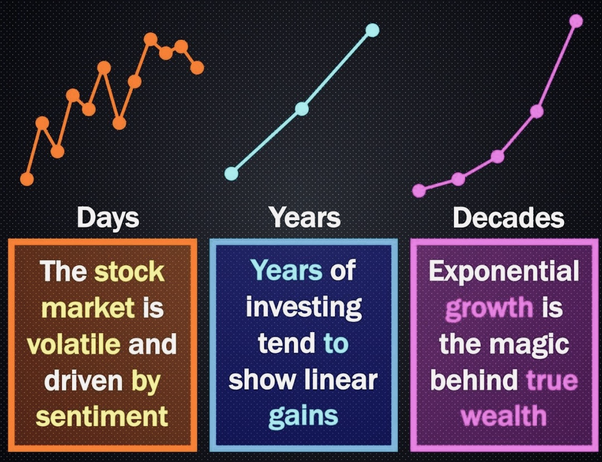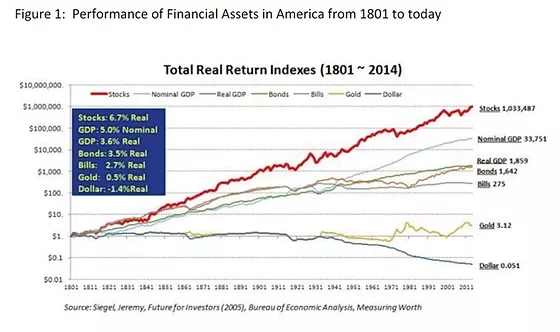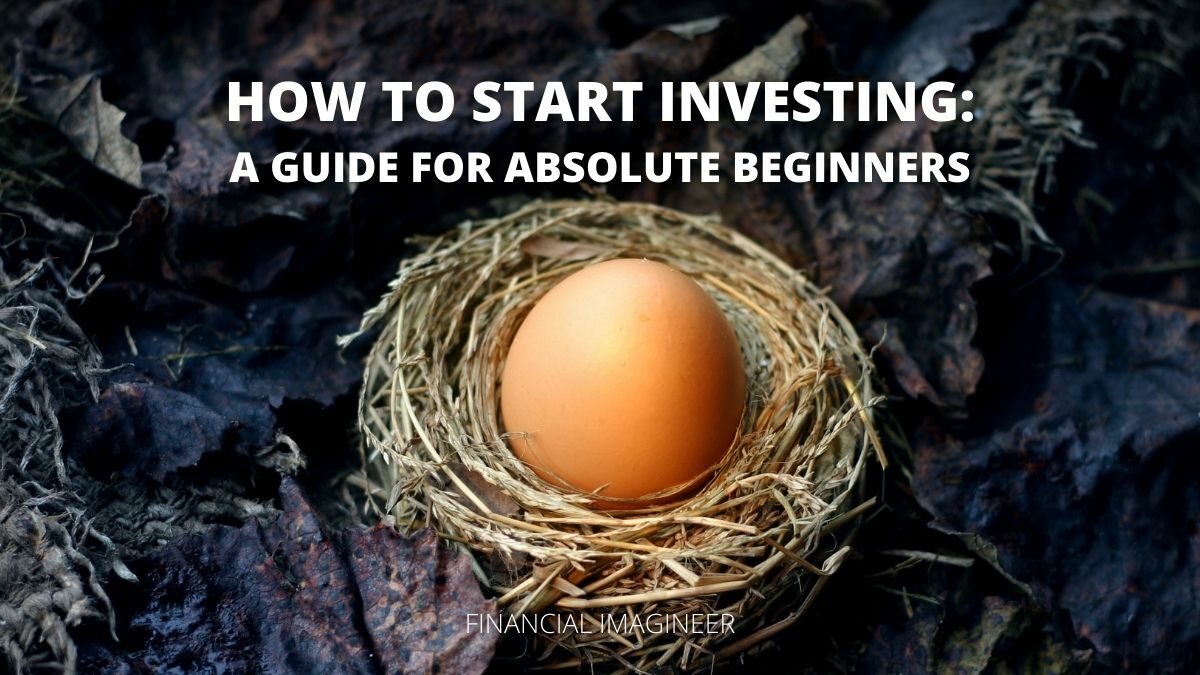Are you interested to learn how to start investing as a beginner?
You have come to the right place!
In this blog post, we will cover all of the basics that you need to know to get started.
We will discuss different investment options, how to assess your risk preference, and how to find the best investments for your needs. We will also talk about setting goals and tracking your progress.
If you are just starting out, it is important to take things slow and learn as much as you can before making any major decisions.
What to Consider before Investing?
The very first step for this process is to understand.
Truly and deeply understand.
Yourself, your capabilities, your goals, your emotions, your understanding of capital markets, and how much risk you are willing to endure.
The more you understand, the easier investing will be.
The less you understand here, the riskier investing will be.
Investing is not a black or white question. I would rather say it’s a 50 shades of building wealth kind of question. There’s no one size fits them all approach.
There are many ways to build wealth, read more about that here.
Investing is one of them, a very important one though.
Find out why you want to invest and what for!

You don’t want money, you want freedom.
Money will get you freedom.
Find your own best way.
Only when you have built an initial level of understanding can you proceed to plan the best-suited investment path for you and start investing as a beginner!
Learn more about Investing?
It’s a great idea to up your financial literacy and learn more about investing.
There are a variety of options for doing so.
You can attend financial workshops, webinars, courses, read books, or articles on the topic, Investopedia offers great definitions for common financial terms.
If you’re feeling overwhelmed, you might also want to consider seeking support from a financial coach, consultant, or advisor. Professional help may give solid advice tailored just for you.
It is important to get as much information as possible before getting started so that you can make informed decisions about your investments.
For the basics, this blog post should be enough to start you off.
“An investment in knowledge pays the best interest.”
Benjamin Franklin
If that’s not enough, there is a sea of online resources that await your perusal.
Get started Investing as Early as Possible
Time is of utmost importance when it comes to investing.
When you’re young, your human capital is more valuable than your financial capital.
Many investors would love to start investing as a beginner again, because of the time you got in front of you.
Make every effort to transfer as much energy as possible from one to the other. As we get older, selling our time becomes increasingly painful and “expensive” because no one knows how much life we got left to live.
The sooner you get started, the more time your investments will have to grow.

Before you get to it, please still take your time to finish this blog post and other resources first.
Another 5-10 minutes of reading will be a GREAT investment!
“Compound interest is the eighth Wonder of the World. He who understands it earns it… he who doesn’t… pays it.”
Albert Einstein
Even if you only start with a small amount of money, it is still important to get in the habit of saving and investing early and regularly.
Get started now.
Time matters.
Start with what You Know
If you are just starting out, it might be wise to stick with investments that you are familiar with.
Only invest in what you truly understand.
If you don’t understand something well enough, don’t rush into investing.

Take time and ask the following questions:
- Is this something interesting/ worthwhile to understand better?
- What level of understanding would give me sufficient comfort to consider?
- How could I acquire more knowledge about it to get me up to “sufficient comfort”?
Also, only hire advisors or consultants when you know what they can do for you and how they get paid.
This will help you to avoid making any costly mistakes.
What Options are Available to You?
There are a variety of investment options available to you, and it can be difficult to know which one is right for you. Especially when you start investing as a beginner it can be super overwhelming. I get it. Investing can be super complex and complicated, but it can also be very easy!
Eliminate decision fatigue, keep it simple and focus on what matters.
Choose what fits your interest, appetite, and effort to learn the best.

We shall now discuss some of the most common investment choices.
Stock Market Investments
The stock market is a place where investors [and others] buy and sell stocks.
Stocks represent ownership in a company, and they can be bought and sold. When you buy a stock, you become a shareholder in that company, and you may receive dividends if the company pays them out. The stock price fluctuates, it may go up, and it may go down. No matter which direction, as investor you will be exposed to either.
Stock market investments are considered to be risky investments, but over time they offer high returns potential.

Bonds Market Investments:
Bonds are debt investments. When you buy a bond, you are lending money to the company or government that issued the bond. In return, you receive regular payments (interest) and hopefully the full repayment of your investment at maturity.
Bonds are considered less risky than stocks, but they offer lower returns potential.
They have different risks as well though which we shall cover in more detail in another post.
Real Estate:
Investing in your own home can be a great way to get in on the real estate market. If you own your own home, it will likely increase in value over time. Real estate is also the first place people get access to leverage [mortgage] and tax advantages. Building a bigger real estate portfolio to rent out to businesses and tenants can be a great way to get passive income and build long-term wealth.
Real estate investments can be made through buying individual properties or through investing in real estate funds or trusts over the public market.
You can even invest in shopping malls, data center REITs or agriculture land through stocks and funds.
Mutual Funds:
Mutual funds are collections of different stocks, bonds, and other securities.
When you invest in a mutual fund, you are investing in a basket of different securities. You get a higher level of diversification.
Mutual funds can be quite risky, but they offer the potential for high returns.
Exchange-Traded Funds:
Exchange-traded funds (ETFs) are similar to mutual funds, but they trade like stocks on an exchange. This means that you can buy and sell ETFs throughout the day. ETFs offer the benefits of both stocks and mutual funds, and they tend to be less risky than individual stocks since they are diversified better.
“Don’t look for the needle in the haystack. Just buy the haystack!”
John Bogle
Your own Business:
Investing in your own business is a great way to get started with investing.
You are fully “in charge” of yourself.
The risks and rewards are all “on you”!
Owning your own business truly allows you to control your destiny.
However, it’s not “investing” in the purest sense: It still requires your active involvement until you delegate its management and/ or sell it.
Gold:
Gold is a physical asset that can be used as an investment. People often invest in gold as a way to protect their money from inflation or economic instability. Gold is not as risky as some other investments, but it does not offer the same potential for returns.
See here an ultra long term chart showing how different asset classes performed over the ultra long run.

Crypto:
While cryptocurrency is a relatively new investment, it has become very popular in recent years. Cryptocurrency has certain benefits over traditional investments, but it also comes with very elevated risks.
“Given a 10% chance of a 100 times payoff, you should take that bet every time.”
Jeff Bezos
Do your own research!
If you’re interested to read more on this, read my interview with a self-made 8-figure Bitcoin Millionaire or my blog post about Monetary Evolution which are both highly relevant.
How to Find the Best Investments for You?
When you are comparing investment options, it is important to look at more than just the return potential.
First and foremost, you should consider your goals, your situation and experience and then the risks and level of time, effort and difficulty, and understanding involved with each investment option.
You don’t have to choose one investment category and invest your whole financial worth in it exclusively. There are many ways how you can construct a diversified portfolio.
Diversification allows you to get to invest in a variety of assets.
For example: Set the majority of your investments in passive index funds and put them on autopilot while you keep 20% for more tactical ideas.

What are Your Goals?
When you’re investing, it’s important to have clear goals in mind.
What do you hope to achieve with your investments?

Would you like to grow your capital over time, do you need a place for safeguarding liquidity or are you looking to generate income from your assets?
If you’re building wealth, do you want to save for retirement? College tuition? A down payment on a house?
The sooner you know what you’re investing and/ or saving for, the easier it will be to find the right investment option(s) for you.
Only start investing [as a beginner] when you’ve got clarity about the above questions: It’s important to start small and gradually increase your investment amount over time.
Track your progress and make sure that you’re on track to reach your goals.
This can help you to stay motivated and make changes if needed.
The important point is, to get started investing though.
“How many millionaires do you know who have become wealthy by investing in savings accounts? I rest my case.”
Robert G. Allen
How to Assess your Risk Preference
When it comes to investing, there is always some element of risk involved. Hence, one of the most important things to consider before getting started investing is assessing your risk preference.
Where do you stand in life?
How to start investing as a beginner?
How can you make investing right for you?
If something happened tomorrow would you have an emergency fund?
Do you have outstanding high-interest debt or credit card debt?
How willing are you to take risks with your money?

In case you’re in a situation of financial stress, maybe hold back with investing for now until you can cover 3-6 months of living expenses with your cash.
When investing, we put our money into something hoping to gain capital gains or income from it. This comes at a risk as asset valuations do fluctuate all the time.
Do you want a conservative investment portfolio that will expose you to less risk but offer lower returns, or are you comfortable with taking on more risk to potentially earn higher returns?
It’s important to find an investment that matches your risk tolerance so that you don’t get overwhelmed or stressed out about your investments.
How much risk you are willing to take on will depend on your personal preferences and financial situation.
Understand yourself, understand your risk preference!
“I will tell you how to become rich. Close the doors. Be fearful when others are greedy. Be greedy when others are fearful.”
Warren Buffett
How much Time do you want to Invest?
Investing takes time and effort, so it’s important to think about how much time you’re willing to put in.
If you’re not interested in actively managing your investments, then a mutual fund or ETF may be a good option for you. If you’re willing to put in more work, then you may want to consider investing in individual stocks or real estate.
The less time you are willing to invest, the more you should look to invest passively, put it on autopilot or look into delegation. The more time you dedicate for investing, the more actively you can follow certain opportunities.
Value and Price
The most essential thing you got to invest time into when it comes to investing is to understand the difference between value and price.
Value is what you get, price is what you pay.
They are actually almost never a perfect match.
That’s why the market always has buyers and sellers willing to transact!
Warren Buffett has said that it’s far better to buy a wonderful business at a fair price than to buy a fair business at a wonderful price.

You should get to know how to evaluate your investments.
You want to avoid buying into overvalued assets but want to get in when they are undervalued.
“The stock market is filled with individuals who know the price of everything, but the value of nothing.”
Phillip Fisher
Strategy and Discipline
Before you get started investing, think about your strategy.
What is your goal?
How much money do you want to invest?
How much risk are you willing to take on in order to get a higher return?
You need discipline and consistency when it comes to making investment decisions. You can’t get distracted or make spur-of-moment decisions without doing research first. It’s important that you don’t let emotions get in the way of good judgment, so think before acting!
“The individual investor should act consistently as an investor and not as a speculator.”
Ben Graham
It might help if there was someone who could hold your hand through all of this, to understand your risk preference, to set-up your goal, your strategy, your choice of instruments and especially through periods where markets get more volatile.
That’s what investment specialists can help you with.
What should I look for in an Investment Advisor/Consultant?
When looking for an investment advisor or consultant, it’s important to know why and for what purpose you’d like to hire help. There are solutions to get help for any part you don’t like to do yourself.
Depending on your situation, you can consider engaging financial coaches, consultants, planners or advisors to portfolio managers.
Especially when start investing as a beginner, make sure that they have your best interests at heart.
When hiring, ask them how they get paid and what type of advice they offer.
Coaches inspire you and are helping more with personal finance issues.
Consultants can give you insights and advice, but you will still be the one responsible for implementation.
Financial planners can draft you a plan where you can see which action will get you what results over time, but you got to follow through.
Advisors can be paid by commission (meaning they get a percentage of the money you invest), by fee (meaning they charge a flat rate for their services), or by salary (meaning they are employed by a company and receive a fixed wage).
Ask about their experience, education, as well as what type of clients they typically work with.
Read my guest post on Data Driven Investor: How to Imagineer Your Dream Life with a Financial Advisor
Tips to get Started investing
- The more time you have to invest, the more risk you can choose
- The more cash/ cash flow you have, the more risk you can choose
- Focus on building a long term strategy with a strategic asset allocation in line with your goals, experience, and knowledge as well as risk tolerance
- ETFs and funds are a great way to avoid stock/ bond picking for beginners
- The less time you have, the more passively you should invest, get more active only where your level of understanding and available time are both given
- You can learn more about investing from blogs, books, videos or you can choose to hire a financial planner, consultant, or advisor
- Once the above is settled, start sooner than later, the earlier you start, the more time your investments have to work for you
- Review your chosen path regularly, compare your results with benchmarks and others, adjust where needed

Conclusion
When you’re ready to get started investing, it’s important to do your research and understand the options available to you. This blog post has outlined some of the most common investment options, but there are many others out there. Invest more time, read more and/ or talk to an investment advisor or consult one of the many online resources available to find the right investment options for you.
Investing can be a great way to grow your money over time, but it’s important to remember that there is no such thing as a guaranteed return. Always invest money you can afford not to touch for a few years, and don’t get overwhelmed by the process.
Stay patient and stay focused on your goals, and you’ll be able to achieve great things with your investments.
“Investing should be more like watching paint dry or watching grass grow. If you want excitement, take $800 and go to Las Vegas.”
Paul Samuelson
Thanks for reading!
I hope this blog post helped explain how to start investing as a beginner.
Please feel free to leave any comments or questions below, or feel free to book a free of charge 30 mins consultancy call with me here, I’ll do my best to answer them.
Have a successful start investing!
Matt
PS: For more awesome content, don’t forget to subscribe to my blog in the box below!

